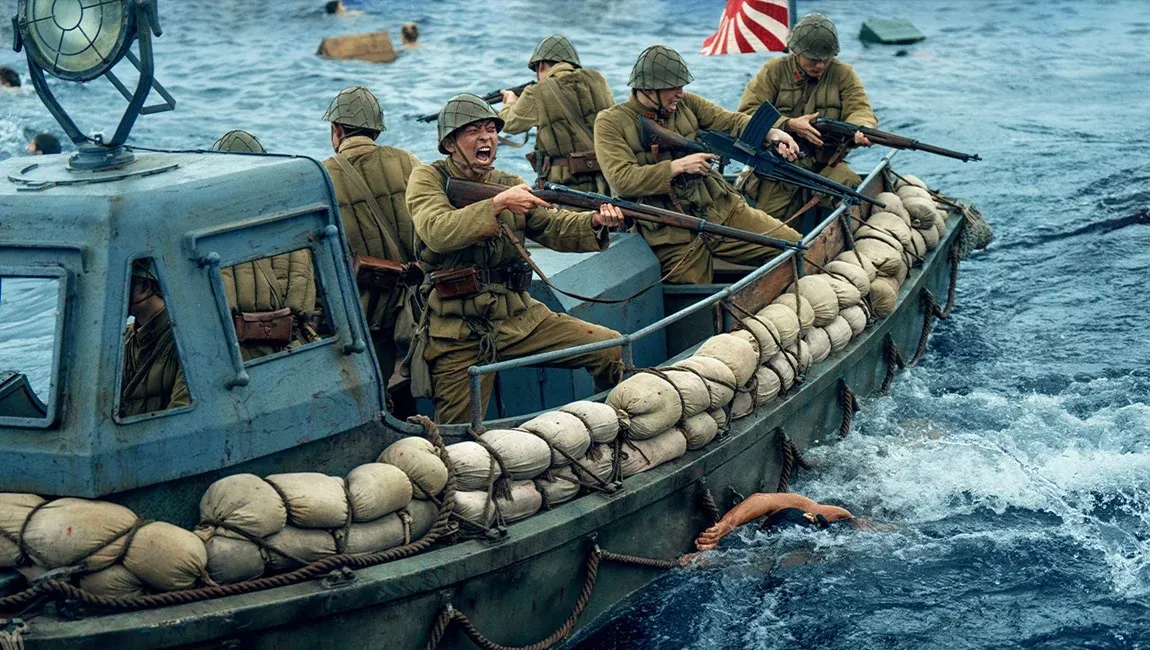Dongji Rescue
“We can’t stay down anymore!”

“We can’t stay down anymore!” This line from war-victim acting veteran Ni Ni is delivered as Ah Hua captures the galvanizing and inspirational spirit of Dongji Rescue, a dramatization of Chinese island fishers bravely fishing 384 British POWs left at sea to die by the Japanese after the sinking of cargo liner Lisbon Maru in 1942. An American submarine torpedoed the Lisbon, unaware of Allied prisoners in the brig. Japanese soldiers shot at those escaping the sinking ship and likely would have killed them all had the local Chinese fishers not broken the blockade and defiantly saved the drowning men amidst gunfire. Most of those fishers came from an island called Dongji. (There are two islands with the same name off China’s east coast. The one where the boat sank is part of the Zhoushan archipelago; the other is administered by Taiwan.) More than 800 of the POWs died either by Japanese gunfire or drowning.
Big-budget historical Chinese films with monstrous Japanese antagonists are nothing new. Director Guan Hu is perhaps most known for The Eight Hundred, his 300-ization of the Defense of Sihang Warehouse in 1937, while Ni Ni’s breakout role was as the leader of a group of prostitutes in Flowers of War, Zhang Yimou’s dramatization of the Rape of Nanjing in the Second Sino-Japanese War (also known as the War of Resistance Against Japanese Aggression). Steven Spielberg’s Empire of the Sun, about an English boy and an American soldier stationed in Shanghai during the invasion, can also be folded into this conversation. The whole of this subgenre is filled with dark material, and there’s simply no way around it when labor camps, city-wide rapes, and Geneva Code transgressions were standard operating procedure for the imperial Japanese army. Dongji Rescue still falls onto the darker side of the spectrum for these films.
Continue reading at In Review Online.